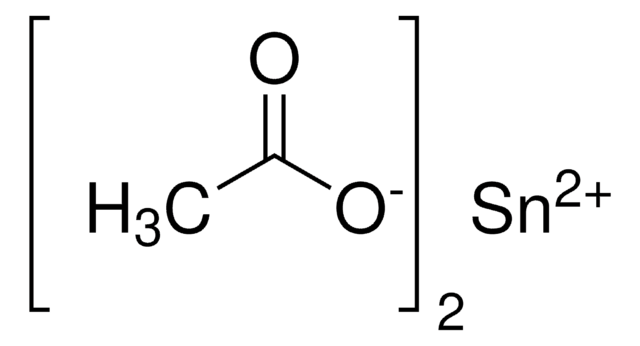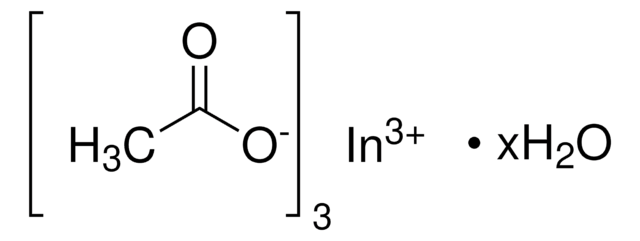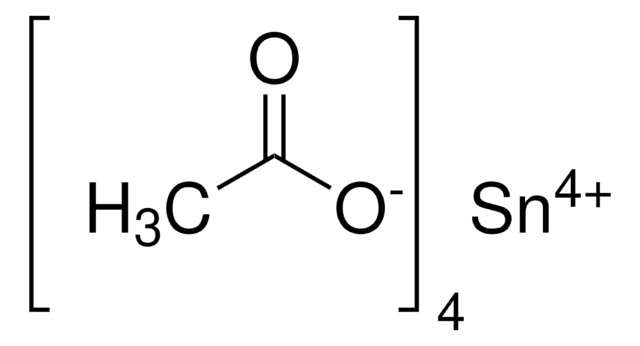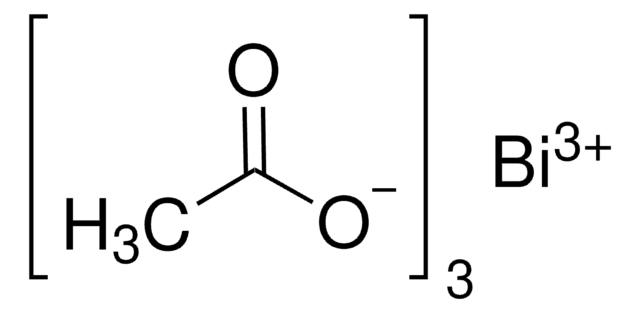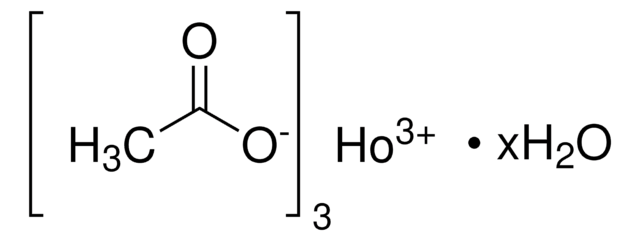510270
Indium(III) acetate
99.99% trace metals basis
Synonym(s):
Indium triacetate
About This Item
Recommended Products
Quality Level
Assay
99.99% trace metals basis
form
solid
reaction suitability
core: indium
reagent type: catalyst
mp
270 °C (dec.) (lit.)
SMILES string
CC(=O)O[In](OC(C)=O)OC(C)=O
InChI
1S/3C2H4O2.In/c3*1-2(3)4;/h3*1H3,(H,3,4);/q;;;+3/p-3
InChI key
VBXWCGWXDOBUQZ-UHFFFAOYSA-K
Looking for similar products? Visit Product Comparison Guide
Related Categories
General description
Application
intermolecular radical addition of organic iodides to electron-deficient alkenes
the reduction of 1-bromo-3-phenylpropane to propylbenzene.
Signal Word
Warning
Hazard Statements
Precautionary Statements
Hazard Classifications
Eye Irrit. 2 - Skin Irrit. 2 - STOT SE 3
Target Organs
Respiratory system
Storage Class Code
11 - Combustible Solids
WGK
WGK 3
Flash Point(F)
Not applicable
Flash Point(C)
Not applicable
Personal Protective Equipment
Certificates of Analysis (COA)
Search for Certificates of Analysis (COA) by entering the products Lot/Batch Number. Lot and Batch Numbers can be found on a product’s label following the words ‘Lot’ or ‘Batch’.
Already Own This Product?
Find documentation for the products that you have recently purchased in the Document Library.
Customers Also Viewed
Articles
The properties of many devices are limited by the intrinsic properties of the materials that compose them.
Our team of scientists has experience in all areas of research including Life Science, Material Science, Chemical Synthesis, Chromatography, Analytical and many others.
Contact Technical Service